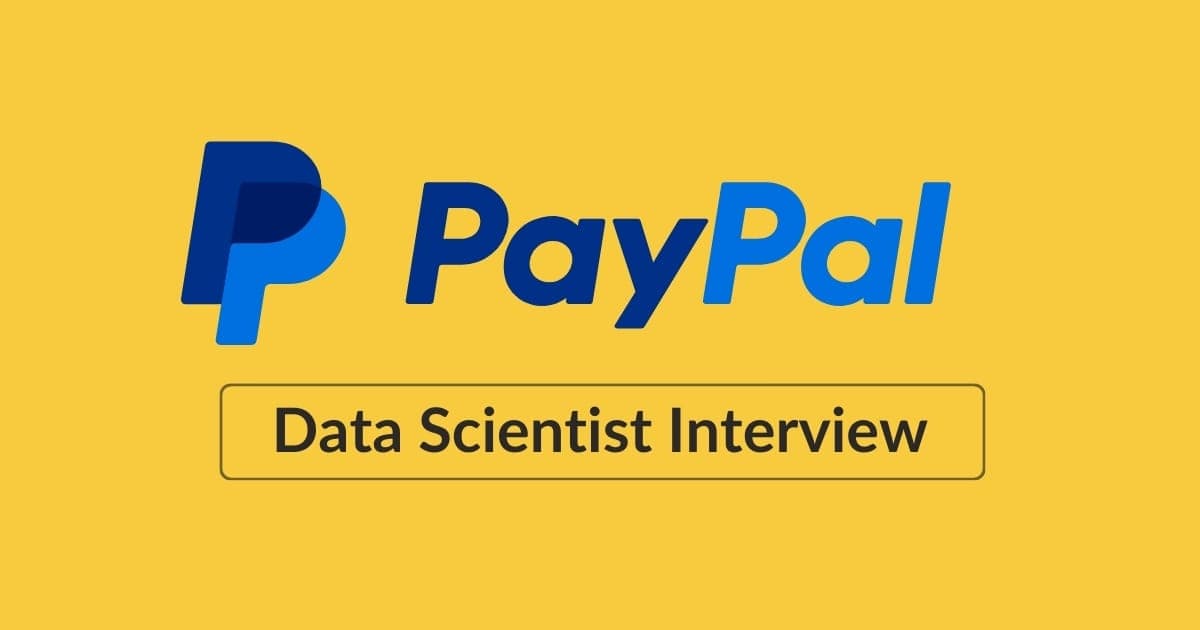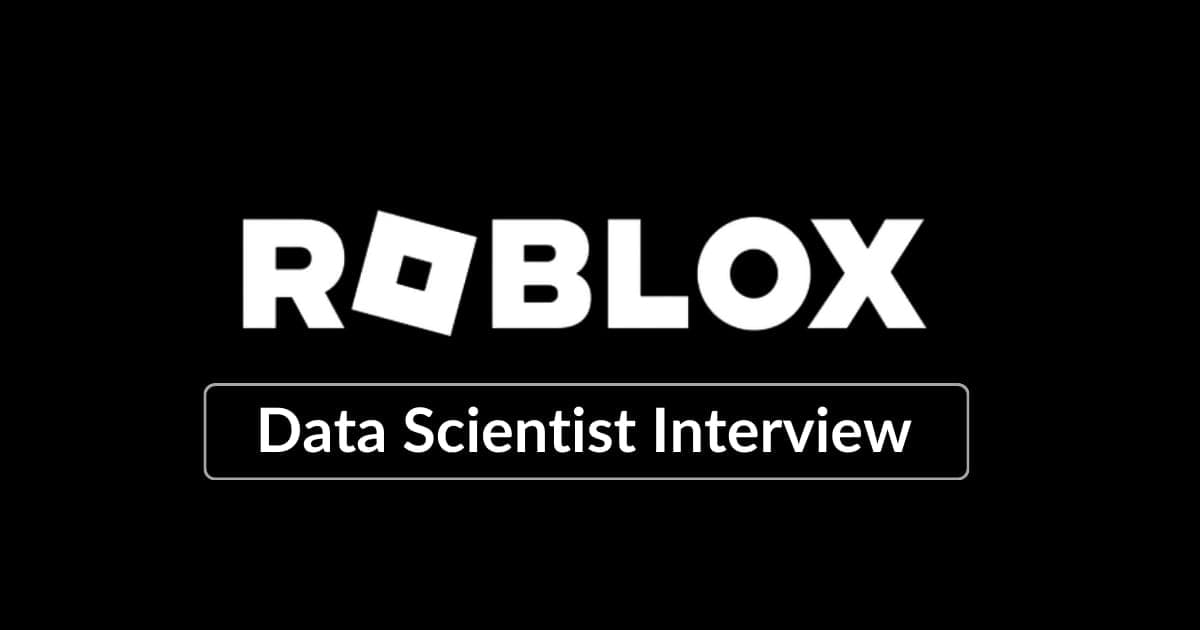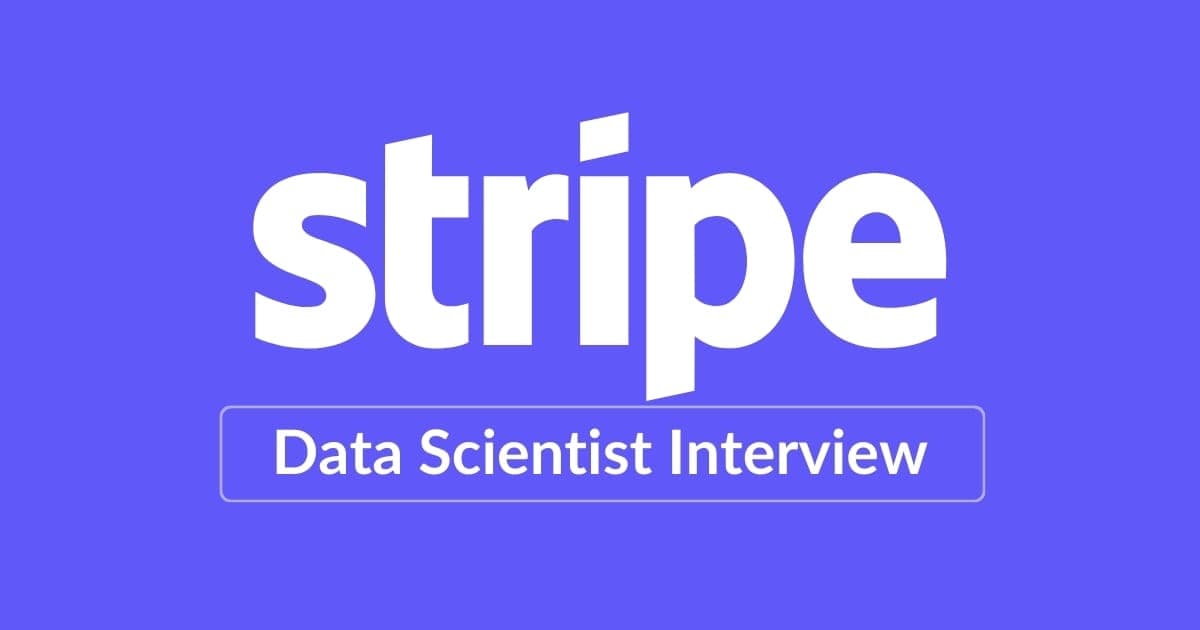Are you preparing for a Data Scientist interview at OpenAI? This comprehensive guide will provide you with insights into OpenAI’s interview process, the essential skills required, and strategies to help you excel in your interview.
As a leader in artificial intelligence, OpenAI seeks data scientists who can leverage their technical expertise and analytical skills to drive innovation and enhance user experiences. Understanding OpenAI’s unique approach to interviewing will give you a significant advantage in this competitive field.
In this blog, we will explore the interview structure, highlight the types of questions you can expect, and share valuable tips to help you navigate each stage with confidence.
Let’s dive in 👇
1. OpenAI Data Scientist Job
1.1 Role Overview
At OpenAI, Data Scientists play a pivotal role in driving the development of innovative AI products and services that reach millions of users and businesses globally. This position requires a unique combination of technical proficiency, analytical skills, and strategic insight to generate impactful data-driven decisions. As a Data Scientist at OpenAI, you will work closely with cross-functional teams to tackle complex problems and enhance the user experience through data insights.
Key Responsibilities:
- Contribute to a data-driven product development culture for consumer and enterprise products.
- Design and implement analytical projects to optimize product performance and user engagement.
- Develop machine learning models to inform product development and business strategies.
- Create and maintain dashboards to support decision-making for key stakeholders.
- Analyze large datasets to identify trends and derive actionable insights.
- Design and conduct experiments, such as A/B testing, to evaluate the impact of product changes.
- Collaborate with engineering, marketing, and business teams to align on key metrics and democratize data access.
- Ensure data quality and build robust data pipelines to support analytics initiatives.
Skills and Qualifications:
- Proficiency in SQL, Python, and statistical analysis.
- Experience with machine learning algorithms and data modeling techniques.
- Expertise in data visualization tools.
- Strong understanding of experimental design and A/B testing principles.
- Ability to manage projects from conception to execution, including risk assessment and impact evaluation.
- Excellent communication skills to convey data insights and strategic recommendations effectively.
1.2 Compensation and Benefits
OpenAI offers a highly competitive compensation package for Data Scientists, reflecting its commitment to attracting and retaining top talent in the field of artificial intelligence and machine learning. The compensation structure includes a base salary, stock options, and performance bonuses, along with a range of benefits that support work-life balance and professional development.
Additional Benefits:
- Participation in OpenAI’s stock programs, including performance-based stock units (PPUs) with a four-year vesting schedule.
- Comprehensive health, dental, and vision insurance.
- Generous paid time off and flexible work arrangements.
- Professional development opportunities, including access to conferences and training.
- Wellness programs and resources to support mental health.
Tips for Negotiation:
- Research compensation benchmarks for data scientist roles in your area to understand the market range.
- Consider the total compensation package, which includes stock options, bonuses, and benefits alongside the base salary.
- Highlight your unique skills and experiences during negotiations to maximize your offer.
OpenAI’s compensation structure is designed to reward innovation, collaboration, and excellence in the rapidly evolving field of AI. For more details, visit OpenAI’s careers page.
2. OpenAI Data Scientist Interview Process and Timeline
Average Timeline: 4-8 weeks
2.1 Resume Screen (1-2 Weeks)
The first stage of OpenAI’s Data Scientist interview process is a resume review. Recruiters assess your background to ensure it aligns with the job requirements. Given the competitive nature of this step, presenting a strong, tailored resume is crucial.
What OpenAI Looks For:
- Proficiency in Python, SQL, and machine learning algorithms.
- Experience in data analysis, A/B testing, and statistical modeling.
- Projects that demonstrate innovation, research expertise, and alignment with OpenAI’s mission.
- Experience with large-scale data systems and deep learning models.
Tips for Success:
- Highlight experience with machine learning, data pipelines, or model optimization.
- Emphasize projects involving deep learning, reinforcement learning, or AI ethics.
- Use keywords like "AI-driven solutions," "data modeling," and "OpenAI’s mission."
- Tailor your resume to showcase alignment with OpenAI’s goal of advancing digital intelligence.
Consider a resume review by an expert recruiter who works at FAANG to ensure your application stands out.
2.2 Recruiter Phone Screen (30 Minutes)
In this initial call, the recruiter reviews your background, skills, and motivation for applying to OpenAI. They will provide an overview of the interview process and discuss your fit for the Data Scientist role.
Example Questions:
- Why do you want to work at OpenAI?
- Tell me about yourself and your experience in data science.
- How do you balance multiple conflicting priorities?
Prepare a concise summary of your experience, focusing on key accomplishments and alignment with OpenAI’s mission.
2.3 Technical Screen (1 Hour)
This round evaluates your technical skills and problem-solving abilities. It typically involves coding challenges, data analysis questions, and discussions on machine learning theory.
Focus Areas:
- Coding: Implement data structures, solve algorithms, and design data stores.
- Machine Learning: Discuss model evaluation, overfitting prevention, and deep learning concepts.
- Data Systems: Design scalable systems for data processing and model training.
Preparation Tips:
Practice coding challenges and review machine learning fundamentals. Consider mock interviews or coaching sessions with an expert coach who works at FAANG for personalized feedback.
2.4 Onsite Interviews (4-6 Hours)
The onsite interview typically consists of multiple rounds with data scientists, managers, and cross-functional partners. Each round is designed to assess specific competencies.
Key Components:
- Coding and System Design: Solve live exercises and design systems for model deployment.
- Machine Learning Modeling: Present and discuss take-home exercises and model optimization strategies.
- Behavioral Interviews: Discuss past projects, collaboration, and adaptability to demonstrate cultural alignment with OpenAI.
Preparation Tips:
- Review core data science topics, including statistical methods, machine learning algorithms, and system design.
- Research OpenAI’s products and services, and think about how data science could enhance them.
- Practice structured and clear communication of your solutions, emphasizing actionable insights.
For Personalized Guidance:
Consider mock interviews or coaching sessions to simulate the experience and receive tailored feedback. This can help you fine-tune your responses and build confidence.
3. OpenAI Data Scientist Interview Questions
3.1 Probability & Statistics Questions
Probability and statistics questions assess your understanding of statistical methods and your ability to apply them to real-world data problems.
Example Questions:
- What are the assumptions of linear regression?
- How would you handle missing data in a dataset?
- Explain the difference between supervised and unsupervised learning.
- What is overfitting and how can it be prevented?
- How would you measure the effectiveness of extra pay for delivery drivers during peak hours?
- Create a function `rain_days` to calculate the probability of rain on the nth day after today.
- What is the central limit theorem and why is it important?
For more on statistics, check out the Applied Statistics Course.
3.2 Machine Learning Questions
Machine learning questions evaluate your knowledge of algorithms, model building, and problem-solving techniques applicable to OpenAI’s projects.
Example Questions:
- Implement basic ML algorithms from scratch (e.g., linear regression, k-means clustering).
- How do you prevent overfitting or underfitting in a deep learning model?
- Explain deep reinforcement learning.
- Optimizing large-scale models.
- Designing data pipelines for processing and preparing training data.
- Describe a project where you used machine learning to solve a problem.
- What is the bias-variance tradeoff?
Enhance your ML skills with the Machine Learning Course.
3.3 SQL Questions
SQL questions assess your ability to manipulate and analyze data using complex queries. Below are example tables OpenAI might use during the SQL round of the interview:
Users Table:
| UserID | UserName | JoinDate |
|---|---|---|
| 1 | Alice | 2023-01-01 |
| 2 | Bob | 2023-02-01 |
| 3 | Carol | 2023-03-01 |
Projects Table:
| ProjectID | ProjectName | StartDate | EndDate |
|---|---|---|---|
| 101 | AI Research | 2023-01-15 | 2023-06-15 |
| 102 | Data Analysis | 2023-02-20 | 2023-07-20 |
| 103 | Machine Learning | 2023-03-10 | 2023-08-10 |
Example Questions:
- User Projects: Write a query to find all users who have worked on the 'AI Research' project.
- Project Duration: Write a query to calculate the duration of each project in days.
- Recent Users: Write a query to find users who joined after February 2023.
- Project Overlap: Write a query to find projects that overlap in their duration.
- User Count: Write a query to count the number of users who joined each month.
Practice SQL queries on the DataInterview SQL pad.
4. How to Prepare for the OpenAI Data Scientist Interview
4.1 Understand OpenAI’s Business Model and Products
To excel in open-ended case studies at OpenAI, it’s crucial to understand their business model and product offerings. OpenAI is at the forefront of AI research and development, creating products that leverage advanced machine learning models to solve real-world problems.
Key Areas to Understand:
- Product Offerings: Familiarize yourself with OpenAI’s products like ChatGPT, DALL-E, and Codex, and understand their applications and user base.
- Revenue Streams: Explore how OpenAI monetizes its technology through API access, partnerships, and enterprise solutions.
- Innovation Focus: Understand OpenAI’s commitment to ethical AI and how data science contributes to responsible AI development.
Grasping these aspects will provide context for tackling product and business case questions, such as proposing data-driven strategies to enhance OpenAI’s offerings.
4.2 Master OpenAI’s Product Metrics
Familiarity with OpenAI’s product metrics is essential for excelling in product case and technical interviews.
Key Metrics:
- User Engagement: Metrics like active users, session duration, and user retention for products like ChatGPT.
- Model Performance: Evaluation metrics such as accuracy, precision, recall, and F1 score for AI models.
- Operational Metrics: System uptime, response times, and scalability for AI services.
These metrics will help you navigate product case questions and demonstrate your understanding of data’s impact on business decisions.
Familiarizing yourself with these KPIs will help you navigate product case questions and demonstrate strong business acumen.
4.3 Align with OpenAI’s Mission and Values
OpenAI’s mission is to ensure that artificial general intelligence (AGI) benefits all of humanity. Aligning your preparation with this mission is key to showcasing your cultural fit during interviews.
Core Values:
- Commitment to ethical AI and responsible innovation.
- Collaboration across diverse teams and disciplines.
- Dedication to data-driven decision-making and problem-solving.
Showcase Your Fit:
Reflect on your experiences where you:
- Used data to create ethical and impactful solutions.
- Innovated on existing processes or products.
- Collaborated effectively with diverse teams to achieve shared goals.
Highlight these examples in behavioral interviews to authentically demonstrate alignment with OpenAI’s mission and values.
4.4 Strengthen Your SQL and Coding Skills
OpenAI emphasizes technical rigor, making SQL and programming proficiency essential for success in their data science interviews.
Key Focus Areas:
- SQL Skills:
- Master joins (INNER, LEFT, RIGHT).
- Practice aggregations (SUM, COUNT, AVG) and filtering with
GROUP BYandHAVING. - Understand window functions (RANK, ROW_NUMBER).
- Build complex queries using subqueries and Common Table Expressions (CTEs).
- Programming Skills:
- Python: Focus on data manipulation with pandas and NumPy.
- Machine Learning: Brush up on libraries like scikit-learn for model building and evaluation.
Preparation Tips:
- Practice SQL queries on real-world scenarios, such as user engagement and model performance analysis.
- Use platforms like DataInterview Bootcamp for additional practice!
- Be ready to explain your logic and optimization strategies during coding challenges.
4.5 Practice with a Peer or Interview Coach
Simulating the interview experience can significantly improve your confidence and readiness. Mock interviews with a peer or coach can help you refine your answers and receive constructive feedback.
Tips:
- Practice structuring your answers for product case and technical questions.
- Review common behavioral questions to align your responses with OpenAI’s values.
- Engage with professional coaching services such as DataInterview.com for tailored, in-depth guidance and feedback.
Consider engaging with coaching platforms like DataInterview.com for tailored preparation. Mock interviews will help you build communication skills, anticipate potential challenges, and feel confident during OpenAI’s interview process.
5. FAQ
- What is the typical interview process for a Data Scientist at OpenAI?
The interview process includes a resume screen, recruiter phone screen, technical screen, and onsite interviews. The entire process typically spans 4-8 weeks. - What skills are essential for a Data Scientist role at OpenAI?
Key skills include proficiency in SQL, Python, statistical analysis, machine learning algorithms, data visualization, and a strong understanding of experimental design and A/B testing principles. - How can I prepare for the technical interviews?
Focus on practicing coding challenges, SQL queries, and machine learning concepts. Review statistical methods, A/B testing, and be prepared to discuss your past projects and their impact on business outcomes. - What should I highlight in my resume for OpenAI?
Emphasize your experience with machine learning, data analysis, and projects that align with OpenAI’s mission. Highlight your ability to work with large datasets and your contributions to data-driven decision-making. - How does OpenAI evaluate candidates during interviews?
Candidates are assessed on their technical skills, problem-solving abilities, collaboration, and cultural fit. OpenAI places a strong emphasis on innovation and the ability to drive impactful data-driven decisions. - What is OpenAI’s mission?
OpenAI’s mission is to ensure that artificial general intelligence (AGI) benefits all of humanity, focusing on ethical AI development and responsible innovation. - What are the compensation levels for Data Scientists at OpenAI?
Compensation for Data Scientists at OpenAI ranges from approximately $625K for entry-level positions to over $856K for senior roles, including base salary, stock options, and performance bonuses. - What should I know about OpenAI’s business model for the interview?
Understanding OpenAI’s product offerings, such as ChatGPT and DALL-E, and their revenue streams, including API access and partnerships, will be beneficial for product case questions during the interview. - What are some key metrics OpenAI tracks for success?
Key metrics include user engagement metrics (active users, session duration), model performance metrics (accuracy, precision, recall), and operational metrics (system uptime, response times). - How can I align my responses with OpenAI’s mission and values?
Highlight experiences that demonstrate your commitment to ethical AI, collaboration across diverse teams, and how you’ve used data to drive innovative solutions that benefit users and businesses.



